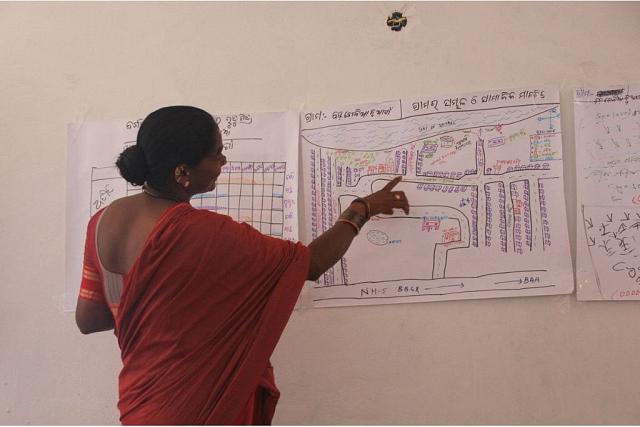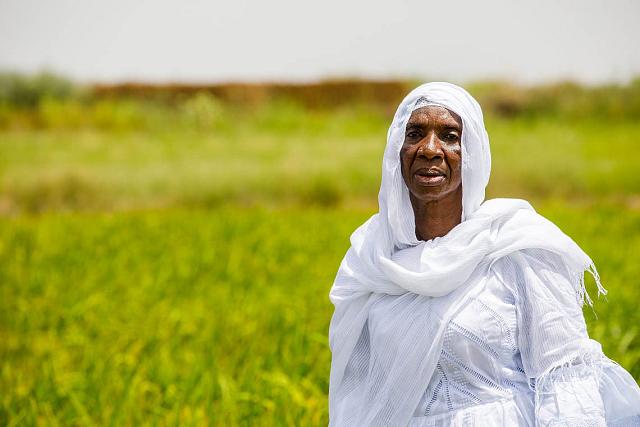From a protest encampment in Islamabad, hundreds of women from Balochistan are demanding the return of their missing loved ones amid staunch government repression.


From a protest encampment in Islamabad, hundreds of women from Balochistan are demanding the return of their missing loved ones amid staunch government repression.

The language and expressions shaping the climate change conversation often don’t resonate with the realities of the most affected communities. This needs to change.

We spent six years talking to women who stayed put while men in their lives migrated. This is what we learned.
Most of the time, to write about migration means telling the stories of people who move: those forced from their homes by natural disasters, conflict, violence, or the effects of climate change, or so fed up with limited economic opportunities, corruption, and bad governance that the faint glint (…)

Every civilization leaves ruins in its wake. These spaces and their poetics offer valuable insights into contemporary struggles and injustices, says Cecilia Enjuto Rangel

How digital capitalism, despite often being framed as potential growth engine, exploits the already marginalized and reproduces inequalities and power-relations between Africans.

It is possible to say that underdevelopment afflicted me when I was 13 years old. On January 20, 1949 I became underdeveloped along with two billion other people of the non-western world, the former colonies, when president Truman took office and adopted the word as a political emblem of (…)

Omicron travel bans on Africa: “The history of racism, inequalities and discrimination is interwoven with the science”
Cartographier les Communs d’Athènes et Istanbul
Face aux politiques néolibérales, quel rôle les Communs peuvent-ils jouer ? Des citoyens en Grèce d’abord puis à Istanbul ont décidé d’explorer cette question en cartographiant les Communs. Les cartes en ligne et les vidéos rendent visibles les expériences qui soutiennent la vie quotidienne des (…)
Le coût exhorbitant du développement
Cet article rend compte de l’ouvrage ’Communities, Commons and Corporations" édité par Perspectives, une organisation non-gouvernementale d’étudiants et chercheurs de l’université de Delhi. Leur objectif est de "rendre compte de la vie et des luttes des populations qui se situent à la marge de (…)
Green Governance: Ecological Survival, Human Rights, and the Law of the Commons
The vast majority of the world’s scientists agree: We have reached a point in history where we are in grave danger of destroying Earth’s life-sustaining capacity. But our attempts to protect natural ecosystems (…)
By Samir Nazareth
Samir Nazareth questions cause-related marketing which extends a corporation’s markets – for water purification sachets or sanitary napkins — in the guise of providing essential services to the poor.
In Bhopal, Unilever and Population Services International (PSI) are sensitising citizens to (…)
By Glenn Ashton
All over the world the youngest, historically most employable sector of society is struggling to find secure employment. In China an estimated one third of college graduates are unable to get work. In Spain and Greece unemployment amongst the youth has risen above 50%. In South Africa it is (…)
Down the road only a few generations, the millennium of Magna Carta, one of the great events in the establishment of civil and human rights, will arrive. Whether it will be celebrated, mourned, or ignored is not at all clear.
That should be a matter of serious immediate concern. What we do (…)
As we seek to better understand what circumstances local alternatives for democratic, equitable and sustainable control of water Commons are working best, water justice activists in the North and South continue to rediscover the wealth of alternatives in the indigenous societies that so-called (…)
By John Knefel
Class issues fade along with protest coverage
Occupy Wall Street is rightly credited with helping to shift the economic debate in America from a fixation on deficits to issues of income inequality, corporate greed and the centralization of wealth among the richest 1 percent. The movement has (…)
By Saad Hammadi
Dhaka’s latest slum demolition shows the full scale of the Bangladeshi government’s callousness and ineptitude.
The summer heat is scorching but it does not impede the regular bustle of Korail, one of the largest slums of Dhaka, a city where an estimated quarter of the 16 million inhabitants (…)
By T.K. Rajalkshmi
The housing and houselisting census data do not paint a rosy picture of India in terms of basic amenities for its households.
The data on household amenities and assets, released recently by the Office of the Registrar General and Census Commissioner of India, are a stark reminder of the (…)
By Jayati Ghosh
Despite their differences, its member-countries face some common challenges, which they could address by developing new, coordinated strategies.
Strange things happen in the world. Imagine the formation of a grouping of countries spread across the globe only for the simple reason that an (…)
"(The) water crisis is largely our own making. It has resulted not from the natural limitations of the water supply or lack of financing and appropriate technologies, even though these are important factors, but rather from profound failures in water governance.” – UNDP on water governance (…)
By Frank Scott
"If we want to save life and humanity, we are obliged to end the capitalist system." Bolivian President Evo Morales
We hear and read that the economy is rebounding – again – and this during a multi billion dollar presidential campaign. Gee. Threats of more foreign wars are also unrelated to (…)